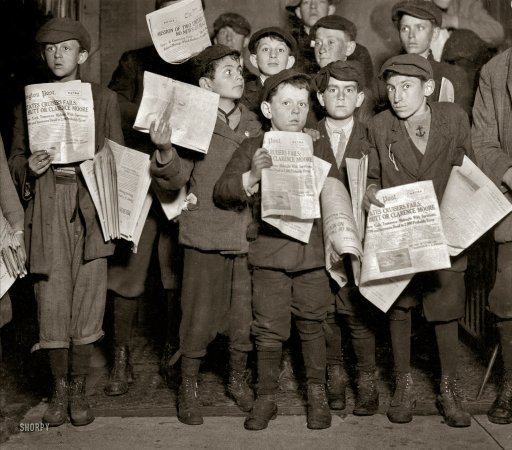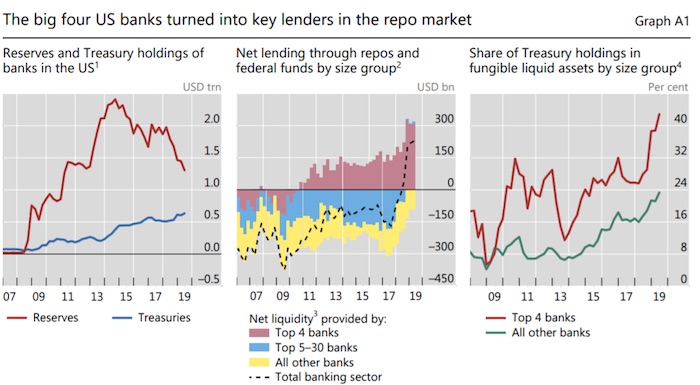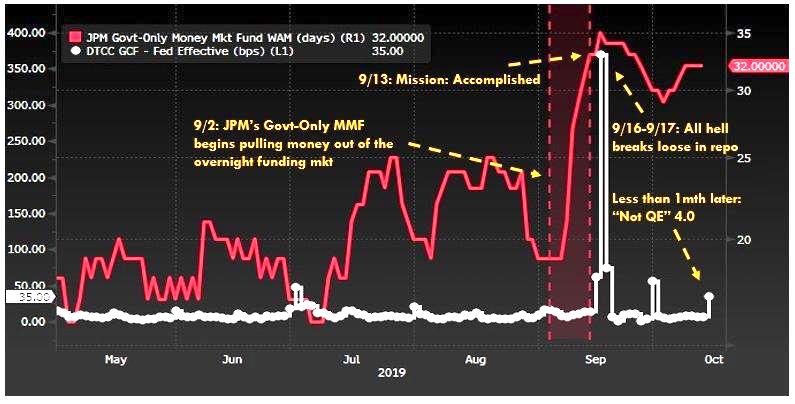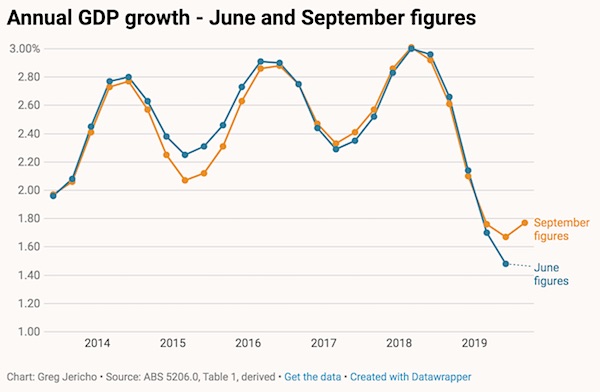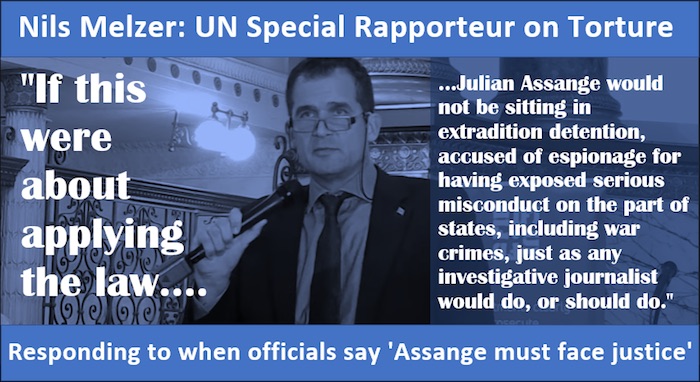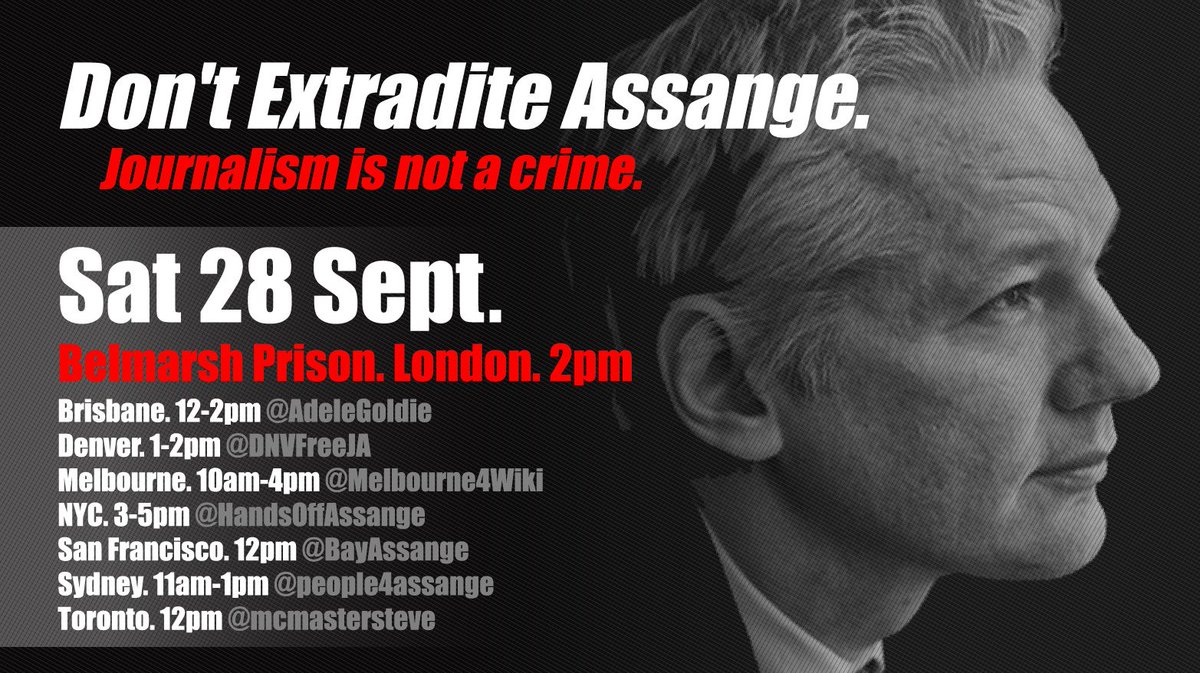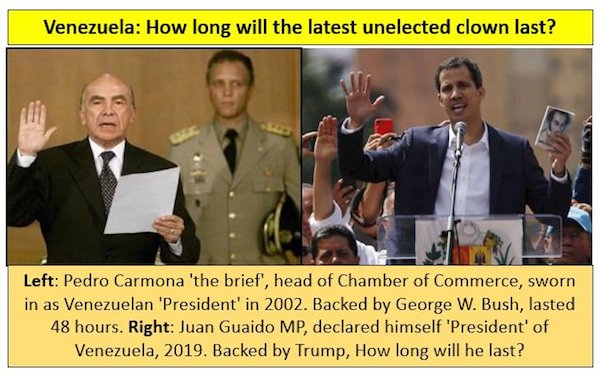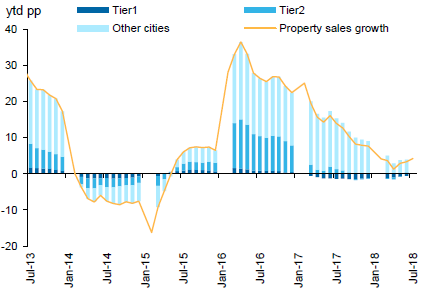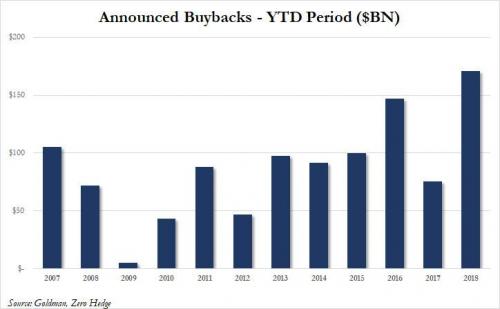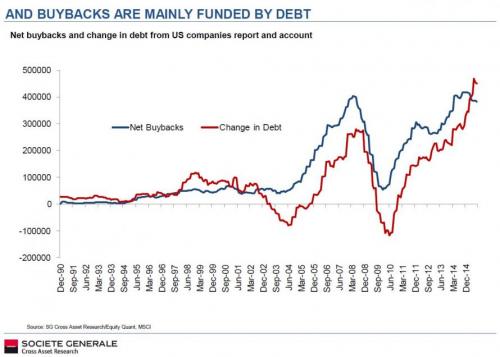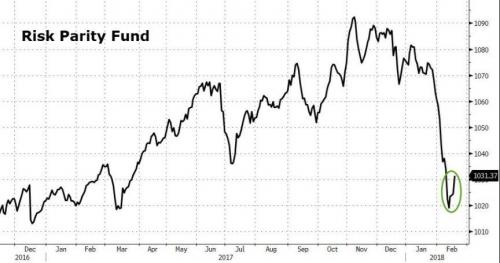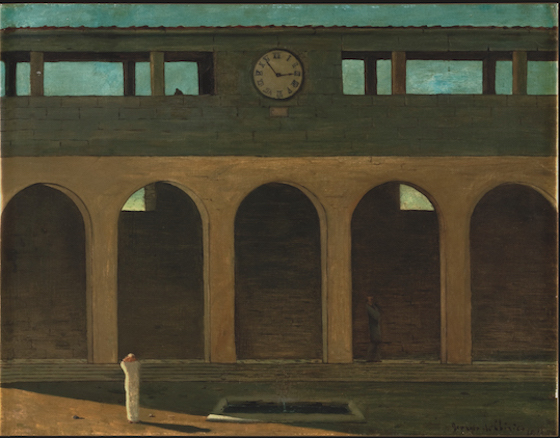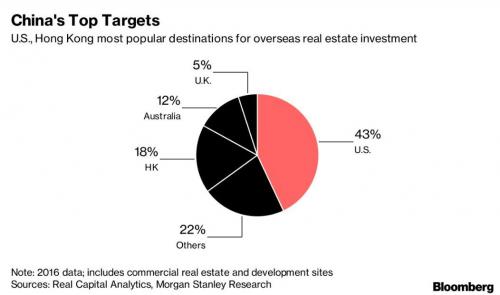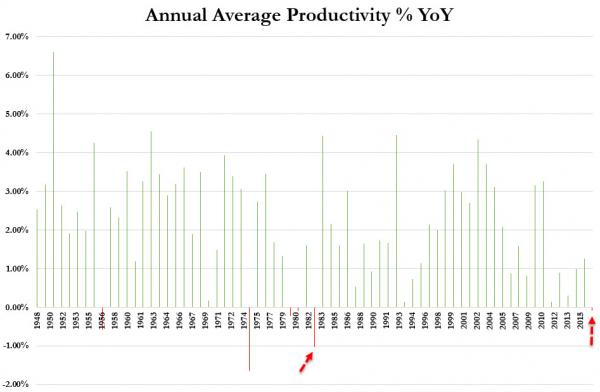
Edward Hopper Christmas card 1928



As I said to friends earlier: A circus in which even the clowns are not funny. The Dems never really tried to win. When they all agreed on witnesses, the Dems reneged as soon as it was clear that Pelosi would be called.
• Only Seven GOP Senators Vote To Convict Trump (F.)
The U.S. Senate on Saturday voted to acquit former President Donald Trump on charges of inciting the Jan. 6 attack on the Capitol, with just 7 Senate Republicans siding with Democrats in voting to convict him. Sens. Richard Burr (R-N.C.), Bill Cassidy (R-La.), Susan Collins (R-Maine), Lisa Murkowski (R-Alaska), Mitt Romney (R-Utah), Ben Sasse (R-Neb.) and Pat Toomey (R-Pa.) voted with all Democrats to convict Trump on one article of impeachment. The article alleges the ex-president “engaged in high Crimes and Misdemeanors by inciting violence against the Government of the United States.” The result comes after a particularly tumultuous final day of an already chaotic trial in which senators voted to approve debates on calling witnesses, only to backtrack and swiftly conclude the proceedings hours later.
Trump’s acquittal was widely seen as a foregone conclusion, cemented further by Senate Minority Leader Mitch McConnell’s announcement to Republican colleagues on Saturday that he would vote to let off the ex-president he has publicly condemned. “Whatever you came to Washington to do… This is almost certainly how you will be remembered by history,” Rep. Jamie Raskin (D-Md.), the lead impeachment manager, had told senators before the vote. Trump became the first president to be impeached twice last month when the House passed the article of impeachment 232-197, with a historic 10 House Republicans breaking with their party and voting to impeach.
[..] Trump is not out of the woods yet, as he is facing legal scrutiny from prosecutors in several states. Manhattan District Attorney Cy Vance is probing his finances and business practices, while prosecutors in Georgia have reportedly opened a criminal investigation into his call with Georgia Secretary of State Brad Raffensperger, in which he urged Georgia election officials to “find” votes for him.

Mostly peaceful.
“Michael van der Veen hired 24-hour private security for his family after vandals smashed windows & spray-painted “TRAITOR” on the driveway of his..home Friday night. He told reporters Saturday he received more than 100 death threats.”
• Trump’s Philly Lawyers Are Facing A Backlash At Home (Inq.)
If Donald Trump’s team of Philadelphia lawyers thought they’d get a reputational bump from defending a former president on the biggest stage of their careers, it hasn’t turned out that way. They won his acquittal Saturday at his second impeachment trial. But the backlash could end up following them for years. Members of the team described the five-day trial as a trying experience, from infighting between attorneys and second-guessing by Republican advisers in Washington, to derision hurled their way online and at their homes and offices. Michael van der Veen hired 24-hour private security for his family after vandals smashed windows and spray-painted “TRAITOR” on the driveway of his suburban Philadelphia home Friday night. He told reporters Saturday he received more than 100 death threats.
And they acknowledged being caught off guard by the level of rancor from Trump’s critics and supporters alike — even given the country’s fiercely divided politics and how other lawyers in his orbit have fared. “I’ve been representing controversial clients for 30 years, and I’ve never experienced this type of vitriol,” said William J. Brennan, another local member of the team whose past clients include priests accused of sexual abuse and judges facing corruption charges. “We had no political agenda here. We are not partisan warriors. We are criminal defense lawyers who represented a client.” Bruce L. Castor Jr., the former Montgomery County commissioner and district attorney, entered the week as the nominal leader of Trump’s team — a high-profile job that had some back home wondering if it could bolster a future run for statewide office.
Instead, his rocky, rambling opening performance Tuesday drew his client’s ire and turned him into an internet punchline. Conservative TV hosts, like Fox News’ Laura Ingraham, called him “terrible.” Sean Hannity responded: “You’re way too charitable.” Everything from his verbose delivery to his pin-striped suit became targets for social media mockery. Some used his performance to question the aptness of the term Philadelphia lawyer — a phrase inspired by Colonial-era attorney Andrew Hamilton that has long characterized an exceptionally shrewd attorney. Van der Veen — the head of Castor’s law firm, who took over the defense presentation Friday after Castor was sidelined — fared little better.
He delivered a more combative, incendiary performance, attacking Democrats for “hypocrisy” and what he described as “constitutional cancel culture.” His style was reportedly more to his client’s liking. But his testy, hectoring demeanor at the lectern turned him into a target, too. On Saturday, a small group of protesters gathered outside his Center City law firm. They left “VAN DER VEEN = LIAR” scrawled in chalk on the street. On Facebook, the firm’s page turned into a toxic stew of invective. “Michael van der Veen is ranting on my television screen — the new shame of Philadelphia,” one commenter wrote, as another added: “This entire firm should be shut down and every single one of you should lose your license.”

MVDV: “What happened at the Capitol on January 6 is absolutely horrific. But what happened at the Capitol during this trial was not too far away from that.”
MVDV just destroyed the entire media in this clip. Absolute must-watch. pic.twitter.com/RqyruxI3AD
— Neanderthal Thinking Poso (@JackPosobiec) February 14, 2021

Pelosi didn’t want to be called, so no-one was?!
Tweet: “The Democrats went for cover when they found out that the Defense was going to call DC Mayor and Pelosi to testify. What are they hiding?”
• Statement on Senate Impeachment Acquittal of Trump (Nader/Fein)
Donald J. Trump has once again circumvented justice, but not because of a want of facts or law. His life preserver was House Speaker Nancy Pelosi’s decision to refrain from calling critical witnesses possessing “smoking gun” incriminating evidence at Mr. Trump’s second impeachment trial. Her plan to abandon an Ace of Spades for a Two of Clubs to prove Mr. Trump’s guilt was upset by Republican freshman Congresswoman Jamie Herrera Butler (Wash.) who gave the Democrats an opportunity to subpoenas witnesses to testify under oath to fortify the video evidence introduced during the House Managers’ case in chief.
Ms. Butler’s disclosing a conversation with House Minority leader Kevin McCarthy (Calif.) proving President Trump’s endorsement of his mob’s resort to lethal force and violence to unconstitutionally prevent a peaceful transfer of presidential power precipitated a surprise 55-45 Senate vote this morning, including several Republicans, to entertain live witnesses. Democratic Senator Benjamin Cardin (Maryland) appeared on NPR shortly before the Senate reconvened from a recess at 12:30 pm. The Senator declared that the impeachment trial would be continued for two weeks; and, that the only issue remaining for resolution between the prosecution and defense (then in private negotiations) was whether five witnesses for each side would be named or left open for later identification in a Senate witness resolution.
Mr. Cardin was clueless of the Democratic capitulation, snaring defeat from the jaws of victory. The House Managers and Mr. Trump’s defense team agreed to a stipulation to admit into the record a mere written statement by Congresswoman Butler, not delivered in person under oath or via a deposition. Not a single witness would be called.

Schwarzenegger redux.
• Newsom Recall Effort Has Enough Signatures To Trigger Special Election (JTN)
The growing effort to recall California Gov. Gavin Newsom has reportedly secured enough signatures to trigger a special election, potentially setting up the first gubernatorial recall in that state in nearly two decades. Organizers have obtained 1.5 million signatures, more than enough to mandate a special election, Fox News reported on Saturday. The number was allegedly hit earlier this week. The state secretary will have to process the signatures first to ensure they are valid.
Newsom has faced extended criticism for his handling of the COVID-19 pandemic—particularly his shutdown orders, which have at times been among the strictest in the nation—as well as a disastrous PR blunder last year when he was spotted mask-less and at a crowded dinner table in an indoor restaurant. The last California recall election took place in 2003; in that instance, Arnold Schwarzenegger successfully won the election after voters recalled Democratic Gov. Gray Davis.

“..the fragmentation of the American public into a multitude of angry factions, radicalized in different ways online and holding completely different baseline perceptions of reality.”
• How To Understand The Rage Economy (IC)
The attack on the U.S. Capitol on January 6 underlined a disturbing phenomenon that has become undeniable at this point: the fragmentation of the American public into a multitude of angry factions, radicalized in different ways online and holding completely different baseline perceptions of reality. The problem of deliberate misinformation undermining democracy has received lots of attention, but in many ways, the power of fantastic lies to grab people’s allegiance is also a byproduct of a deeper problem: extreme polarization driven by news media monetizing anger in order to survive.
This phenomenon is at the core of what media ecologist and author Andrey Mir in a new book calls “postjournalism.” Mir’s book, titled “Postjournalism and the Death of Newspapers,” is a sweeping look at how the news media evolved and shaped the world over hundreds of years, from newsletters for traders published in medieval Venice, Italy, to modern print newspapers, television, and finally the internet. For pretty much everyone, the news media is the major force that shapes how they perceive the world outside their direct experience. During an era when the main technology for producing and disseminating information changes, the world changes as well. For better or worse, we are living through one of those eras now.
The collective psychological impact of new technologies like social media has been written about in a wave of books over the past few years. Equally significant has been the underlying economic shift that has gradually transformed even traditional media outlets into something wholly different. Journalism traditionally relied on an advertising-based revenue model, and that economy also subtly incentivized a particular lens through which the world was depicted: an upbeat-as-possible, unifying worldview that made advertisers happy and promoted the needs of consumerism, even as it often overlooked or suppressed stories that fell outside its parameters.
When advertisers suddenly flocked to social media, the traditional economic model that underpinned the media and allowed even smaller papers to afford luxuries like foreign correspondents suddenly collapsed. Today established news outlets not only struggle to find advertisers after Facebook and Google swallowed up the market, but they must also compete with a seemingly infinite number of other websites, companies, and even individuals committing “acts of journalism” or just putting out entertainment, thus forcing them to battle for a finite slice of an attention economy that they cannot possibly corner.
The loss of the old advertising paradigm simply killed many local news outlets, which have shuttered at an incredible rate over the past decade. The surviving large organizations have sought desperately for a new model to support themselves. A lucky few have been able to rely on the patronage of philanthropists supporting journalism as a pure social good. But many others have been forced to do something not seen since the era of mass-produced penny tabloids: relying primarily on readers to support them through subscription and membership fees. As Mir argues, this change in the economic structure of the news media has quietly transformed what journalism itself is about, turning it from a theoretically neutral means of “manufacturing consent” into a political cause that people are rallied into supporting, usually by inciting them to some form of outrage.

“It would prove a death sentence for thousands of seniors.”
• Cuomo Didn’t Protect Seniors. But it Was the Media That Covered it Up (NW)
Things are not looking good for New York Governor Andrew Cuomo. After receiving an Emmy “in recognition of his leadership” and writing a bestselling book called American Crisis: Leadership Lessons from the COVID-19 Pandemic, the toll Cuomo’s leadership has taken is finally emerging. On Thursday, the New York Post broke the story that Melissa DeRosa, one of the governor’s top aides, apologized to Democratic lawmakers for fudging the number of nursing home deaths from COVID for fear of being investigated.
Such an investigation was long overdue. One of the biggest scandals of the pandemic has been the number of nursing home deaths in New York City, many of them possibly linked to a March 25 directive from the Cuomo administration forcing nursing homes to take in people even if they had tested positive for COVID-19. It would prove a death sentence for thousands of seniors. And to fend off an investigation, the Cuomo administration underestimated the number of nursing home deaths by 40%. The true number was 15,000, not 9,056.
But this isn’t just a government scandal. It’s a media scandal. For while the Cuomo administration was sentencing seniors to death, the media was busy fawning over Cuomo in a series of softball interviews, many of them conducted by his own brother. Cuomo has been a television mainstay throughout the crisis, particularly on CNN where his brother, Chris Cuomo, is a host. But it wasn’t just his brother who fawned. A June interview with CNN’s Chris Cilizza provided Cuomo an opportunity to tout his performance while criticizing that of then-president Donald Trump and Republican governors who had not gone along with economy-crushing lockdowns. Cilizza was more than happy to assist.
“We tested both theories,” Cuomo told Cilizza. “We have the evidence. It’s numbers. It’s irrefutable. Why don’t we pause and recognize the undeniable reality of the situation?” “On the numbers, it’s hard to disagree,” Cilizza dutifully wrote. “On April 9, New York had almost 10,000 coronavirus cases in a single day, according to a tally from Johns Hopkins University. On Friday, it had just 673 cases statewide.” There would be no follow-up article when New York would hit over 14,000 cases in January. No review of what went wrong in Cuomo’s “undeniable reality.” No comparison to states that found a different “undeniable reality of the situation” and have objectively handled the COVID crisis better.

What does the WHO hold back?
• Patent For Secret Bat Cages At Wuhan Lab (DM)
The Chinese laboratory at the centre of suspicion over the origins of the coronavirus pandemic was awarded a patent for cages to hold live bats for testing just months before the virus started spreading. The revelation comes after the World Health Organisation last week backed Beijing’s line, saying that a leak from the institute was ‘highly unlikely’, while giving credence to theories that the virus had entered the country via frozen meat. The team included Peter Daszak, a British-born zoologist whose organisation EcoHealth Alliance has studied bat-borne viruses with Wuhan lab scientists for 15 years, and who has categorically denied that researchers keep the mammals for testing.
However, The Mail on Sunday has established that the Wuhan Institute of Virology (WIV) filed an application in June 2018 to patent ‘bat rearing cages’ which would be ‘capable of healthy growth and breeding under artificial conditions’. The patent, which has been seen by this newspaper, was granted in January 2019 – 11 months before Beijing reported that the first cases of the virus in the city had broken out just a few miles from the institute. A separate patent, filed by the institute on October 16, 2020, relates to the ‘artificial breeding method of wild bat’. The patent discusses cross- species transmission of SARS- CoV from bat to humans and other animals, saying: ‘Bats infected with the virus naturally or artificially have no obvious clinical symptoms, and the mechanism is unknown’.
It explicitly states that the method is for breeding bats for scientific experiments: ‘The invention aims to provide an artificial breeding method of wild bat predators, which aims at overcoming the defects in the prior art, and the wild bat predators are artificially domesticated, bred and passaged to establish an artificial breeding group, thereby providing a brand-new model experimental animal for scientific research.’ Responding to a question over whether researchers were keeping live bats, Mr Daszak tweeted in April last year: ‘The researchers don’t keep the bats, nor do they kill them. ‘All bats are released back to their cave site after sampling. It’s a conservation measure and is much safer in terms of disease spread than killing them or trying to keep them in a lab.’

6 months to liquidate your assets.
• India Finally Bans Cryptocurrencies (BTCPeers)
India has become the second country to outrightly ban Bitcoin and other cryptocurrencies. This is coming after the Central Bank of Nigeria instructed all financial institutions in the country to block the accounts of all individuals and entities linked to cryptocurrency transactions. There has been a lot of drama surrounding India’s cryptocurrency stance. In 2018, the Reserve Bank of India issued a ban on all cryptocurrency transactions. The ban was lifted by the country’s Supreme Court in March 2020. In December 2020, government officials hinted that they were considering taxing Bitcoin transactions by up to 18%. Barely a month later and there were rumors that the country was mulling over banning all private cryptocurrencies.
Apparently, officials were serious about banning cryptocurrencies. Citing an unnamed senior finance ministry official, BloombergQuint disclosed the government’s move. However, according to the official, the ban would not be imposed overnight, as in the case of Nigeria. Instead, investors would be given three to six months to liquidate their investments. As per the report, India’s Parliament will proceed to introduce a law that bans the usage of cryptocurrencies in all forms, including restricting trading via foreign exchanges. On the flip side of India’s ban is Kenya, an East-African country that has proposed to make Bitcoin its base currency.

BAU
• State Clears First Three Foreign Military Sales Of Biden Administration
The Biden administration has approved three Foreign Military Sales requests for Jordan, Chile and a NATO agency, with a combined potential price tag of more than $200 million.] The approvals mark the first FMS cases moved since President Joe Biden took office. The last FMS cases approved by the State Department came in late December; the Biden team has since announced a pause and review of a number of weapon sales approved by the Trump administration, most notably on weapons purchased by Saudi Arabia and the United Arab Emirates. The three approvals were announced on the website of the Defense Security Cooperation Agency. DSCA announcements mean that the State Department has decided the potential FMS cases meet its standards, but this does not guarantee the sales will happen in their announced forms.
If the U.S. Congress does not object, the foreign customer begins to negotiate on price and quantity, both of which can change during the final negotiations. Jordan was approved for an F-16 Air Combat Training Center and related equipment, with an estimated cost of $60 million. That package would include “mission trainers, combat tactics trainers, instructor/operator stations, tactical environment simulators, brief/debrief stations, scenario generation stations, database generation stations, mission observation centers, and other training center equipment and support,” per the DSCA notice. The center would “enhance” Jordan’s pilot training for their fleet of F-16s, the oldest of which entered service in 1997. Work will primarily be done at Lockheed Martin’s Rotary & Mission Systems center in Orlando, Fla.
Chile was approved to purchase up to 16 Standard Missile-2 (SM-2) Block IIIA missiles, along with support equipment and contractor assistance, with an estimate price tag of $85 million. The anti-air weapons are slated to be used aboard two recently transferred former Adelaide-class frigates to the Chilean Navy. Work would be preformed by Raytheon Missiles and Defense in Tucson, Ariz. The NATO alliance’s Communications and Information Agency to buy 517 AN/PRC-158 Manpack UHF SATCOM radio systems, worth an estimated $65 million. Also included in the package would be “crypto fill devices, man-portable ancillaries, vehicular ancillaries, deployed Headquarter ancillaries, power support, and operator and maintenance training,” per the DSCA notice.

“The main problem we all face is the lack of normalcy in relations between Russia and the European Union – the two largest players in the Eurasian space. It is an unhealthy situation, which does not benefit anyone.”
• Why Russia Is Driving The West Crazy (Escobar)
Future historians may register it as the day when usually unflappable Russian Foreign Minister Sergey Lavrov decided he had had enough: “We are getting used to the fact that the European Union is trying to impose unilateral restrictions, illegitimate restrictions and we proceed from the assumption at this stage that the European Union is an unreliable partner”. Josep Borrell, the EU foreign policy chief, on an official visit to Moscow, had to take it on the chin. Lavrov, always the perfect gentleman, added, “I hope that the strategic review that will take place soon will focus on the key interests of the European Union and that these talks will help to make our contacts more constructive.” He was referring to the EU summit of heads of state and government at the European Council next month, where they will discuss Russia.
Lavrov harbors no illusions the “unreliable partners” will behave like adults. Yet something immensely intriguing can be found in Lavrov’s opening remarks in his meeting with Borrell: “The main problem we all face is the lack of normalcy in relations between Russia and the European Union – the two largest players in the Eurasian space. It is an unhealthy situation, which does not benefit anyone.” The two largest players in the Eurasian space. Let that sink in. We’ll be back to it in a moment. As it stands, the EU seems irretrievably addicted to worsening the “unhealthy situation”. European Commission head Ursula von der Leyen memorably botched the Brussels vaccine game. Essentially, she sent Borrell to Moscow to ask for licensing rights for European firms to produce the Sputnik V vaccine – which will soon be approved by the EU.
And yet Eurocrats prefer to dabble in hysteria, promoting the antics of NATO asset and convicted fraudster Navalny – the Russian Guaido. Meanwhile, on the other side of the Atlantic, under the cover of “strategic deterrence”, the head of the US STRATCOM, Admiral Charles Richard, casually let it slip that “there is a real possibility that a regional crisis with Russia or China could escalate quickly to a conflict involving nuclear weapons, if they perceived a conventional loss would threaten the regime or state.” So the blame for the next – and final – war is already apportioned to the “destabilizing” behavior of Russia and China. It’s assumed they will be “losing” – and then, in a fit of rage, will go nuclear. The Pentagon will be no more than a victim; after all, claims Mr. STRATCOM, we are not “stuck in the Cold War”.

RFK, Jr.
• Opening the CIA’s Can of Worms (Edward Curtin)
With the rise of alternate media and a wide array of dissenting voices on the internet, the establishment felt threatened and went on the defensive. It, therefore, should come as no surprise that those same elite corporate media are now leading the charge for increased censorship and the denial of free speech to those they deem dangerous, whether that involves wars, rigged elections, foreign coups, COVID-19, vaccinations, or the lies of the corporate media themselves. Having already banned critics from writing in their pages and or talking on their screens, these media giants want to make the quieting of dissenting voices complete. Just the other day The New York Times had this headline: “Robert Kennedy Jr. Barred From Instagram Over False Virus Claims.” Notice the lack of the word alleged before “false virus claims.” This is guilt by headline.
It is a perfect piece of propaganda posing as reporting, since it accuses Kennedy, a brilliant and honorable man, of falsity and stupidity, thus justifying Instagram’s ban, and it is an inducement to further censorship of Mr. Kennedy by Facebook, Instagram’s parent company. That ban should follow soon, as the Times’ reporter Jennifer Jett hopes, since she accusingly writes that RFK, Jr. “makes many of the same baseless claims to more than 300,000 followers” at Facebook. Jett made sure her report also went to msn.com and The Boston Globe. This is one example of the censorship underway with much, much more to follow. What was once done under the cover of omission is now done openly and brazenly, cheered on by those who, in an act of bad faith, claim to be upholders of the First Amendment and the importance of free debate in a democracy.
We are quickly slipping into an unreal totalitarian social order. Which brings me to the recent work of Glenn Greenwald and Matt Taibbi, both of whom have strongly and rightly decried this censorship. As I understand their arguments, they go like this. First, the corporate media have today divided up the territory and speak only to their own audiences in echo chambers: liberal to liberals (read: the “allegedly” liberal Democratic Party), such as The New York Times, NBC, etc., and conservative to conservatives (read” the “allegedly” conservative Donald Trump), such as Fox News, Breitbart, etc. They have abandoned old school journalism that, despite its shortcomings, involved objectivity and the reporting of disparate facts and perspectives, but within limits.
Since the digitization of news, their new business models are geared to these separate audiences since they are highly lucrative choices. It’s business-driven since electronic media have replaced paper as advertising revenues have shifted and people’s ability to focus on complicated issues has diminished drastically. Old school journalism is suffering as a result and thus writers such as Greenwald and Taibbi and Chris Hedges have taken their work to the internet to escape such restrictive categories and the accompanying censorship.
Secondly, the great call for censorship is not something the Silicon Valley companies want because they want more people using their media since it means more money for them, but they are being pressured to do it by the traditional old school media, such as The New York Times, who now employ “tattletales and censors,” people who are power-hungry jerks, to sniff out dissenting voices that they can recommend should be banned. Greenwald says, They do it in part for power: to ensure nobody but they can control the flow of information. They do it partly for ideology and out of hubris: the belief that their worldview is so indisputably right that all dissent is inherently dangerous ‘disinformation.’”

We try to run the Automatic Earth on donations. Since ad revenue has collapsed, you are now not just a reader, but an integral part of the process that builds this site. Thank you for your support.



Support the Automatic Earth in 2021. Click at the top of the sidebars to donate with Paypal and Patreon.


